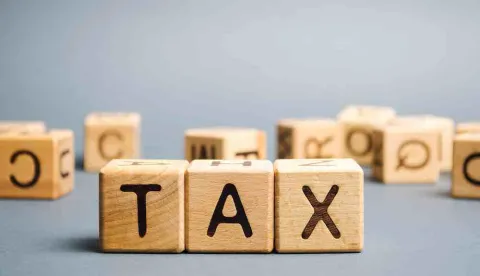In CIC Services, LLC v. IRS,1 the U.S. District Court for the Eastern District of Tennessee invalidated Notice 2016-66 and ordered the IRS to return disclosure documents obtained from taxpayers and material advisors who participated in micro-captive insurance arrangements. (For a more detailed explanation of the district court’s ruling, see GT Alert, Court Invalidates Notice 2016-66 on Micro-Captive Transactions, the Second Time an IRS Notice Was Vacated This Month.) The ruling raised questions about how the IRS would comply with the injunction, which implicated thousands of taxpayers disclosing micro-captive transactions under Notice 2016-66. On April 18, 2022, the government filed a Motion for Reconsideration of Injunctive Relief arguing that the IRS should not be required to return the documents obtained under Notice 2016-66. (See GT Alert, The Saga Continues in CIC Services v. IRS: Government Moves to Prevent IRS from Returning Disclosure Documents Obtained from Nonparties Under Notice 2016-66.) In a rare change of position, on June 2, 2022, the district court granted the government’s motion, holding the IRS was not required to return the disclosure documents to nonparty taxpayers and material advisors.2
The district court stated that the principles of equity justified requiring the IRS to return the documents obtained under Notice 2016-66. Applying the factors in Monsanto Co. v. Geertson Seed Farms,3 the district court determined: (i) nonparty taxpayers and material advisors suffered irreparable harm from having to comply with Notice 2016-66 for over four years; (ii) monetary damages are inadequate to compensate for costs and time spent complying with Notice 2016-66; (iii) the hardship weighed in favor of an equitable remedy; and (iv) although the IRS would incur considerable costs in complying with the order, the public interest is served in ensuring that the IRS comply with the APA and not benefit from unlawful activity. Nevertheless, the district court concluded that CIC Services could not request injunctive relief for nonparties because it did not comply with the procedural rules for class actions under Rule 23 of the Federal Rules of Civil Procedure. Having found no legal precedent for compelling an agency to take affirmative action with respect to nonparties, the district court ruled that it committed clear error in ordering the IRS to return the disclosure documents it collected under Notice 2016-66. The district court acknowledged that the ruling is a windfall to the IRS but noted that nonparty taxpayers and material advisors would benefit from not having to comply with Notice 2016-66 going forward.
The district court’s ruling confirms that nonparty taxpayers and material advisors will not be receiving the disclosure documents they filed under Notice 2016-66 back from the IRS. However, the district court’s invalidation of Notice 2016-66 may still affect nonparty taxpayers and material advisors’ duty to disclose their participation in micro-captive transactions and their ability to obtain refunds for penalties paid. Taxpayers and material advisors may wish to consult their tax advisors to understand how CIC Services impacts them.
FOOTNOTES
1 Case No. 3:17-cv-110 (E.D. Tenn. Mar. 21, 2022).
2 Case No. 3:17-cv-110 (E.D. Tenn. Jun. 2, 2022).
3 561 U.S. 129 (2010).




 />i
/>i

